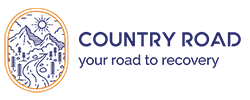If you are struggling with depression, you are not alone. In 2020, more than 20 million Americans suffered from a depressive episode — nearly 10% of the total population across all demographics. Depression is by far the leading cause of Years Lost to Disability among high-, medium-, and low-income individuals, and it’s not slowing down. Advances in medication have helped millions, but many people prefer psychological intervention to medication, both due to the side effects of psychiatric medication and the associated stigma. Is psychological treatment on its own enough to cure the complex and layered symptoms of depression? One weekly session with a therapist might not be enough to climb out of the hole of depression, but intensive outpatient therapy for depression can be a powerful tool to find healing.
What is Intensive Outpatient Therapy for Depression?
Intensive outpatient therapy for depression involves meeting for at least nine hours per week, across several sessions, in order to partake in a variety of therapeutic approaches. For example, typical IOP for depression might include one-on-one counseling, group therapy, CBT (cognitive behavioral therapy), DBT (dialectical behavior therapy), and more. Each client receives a personalized treatment plan based on their particular needs and goals.
The combined therapy of IOP is more expensive than just going to a therapist. However, it saves money in the long run by allowing you to get back to normal life sooner — and to stay there. One round of successful IOP can prevent relapse, hospitalization, or worse down the road. In addition, IOP treatment can simultaneously address any of the other mental and behavioral health issues that often accompany depression, such as substance abuse, eating disorders, or anxiety.
Does IOP for Depression Work?
IOP has been scientifically proven to reduce anxiety, depression, and suicidality among patients. In particular, CBT — a staple of many IOP programs — has been shown to be effective in treating depression.
CBT takes a “cognitive” approach to depression, meaning practitioners teach clients how distorted thinking can cause many of their most persistent symptoms. In any given situation, it is not the circumstances that affect you; rather, it is how you think about those circumstances. In CBT, you work to reshape your thinking about your life and what happens to you, which then in turn can reduce your symptoms.
CBT may sound too good to be true. How many of us struggling with depression have been told to “Think happy thoughts?” It’s just not that simple.
The data is clear, however: CBT works. One major meta-analysis of more than 100 depression studies found that CBT was the most powerful treatment technique, surpassed only by treatment plans that involve a combination of therapies, like IOP. CBT was significantly more effective than medication alone, and significantly more effective than no course of treatment at all.
Is IOP Right for Me?
IOP is not the right fit for every person struggling with depression. If you have severe depression, persistent suicidal thoughts, serious medical issues, or a history of hospitalization, you may benefit from the comprehensive support that residential treatment offers. Otherwise, an outpatient program may be a fit for you.
Paying for IOP for Depression
IOP may be more affordable than you think. Many insurance providers will cover all or at least part of an IOP treatment. Call our care team or send a chat to verify your benefits and find out if your IOP costs would be covered. Start a new road and leave depression behind. We’re here to help.


